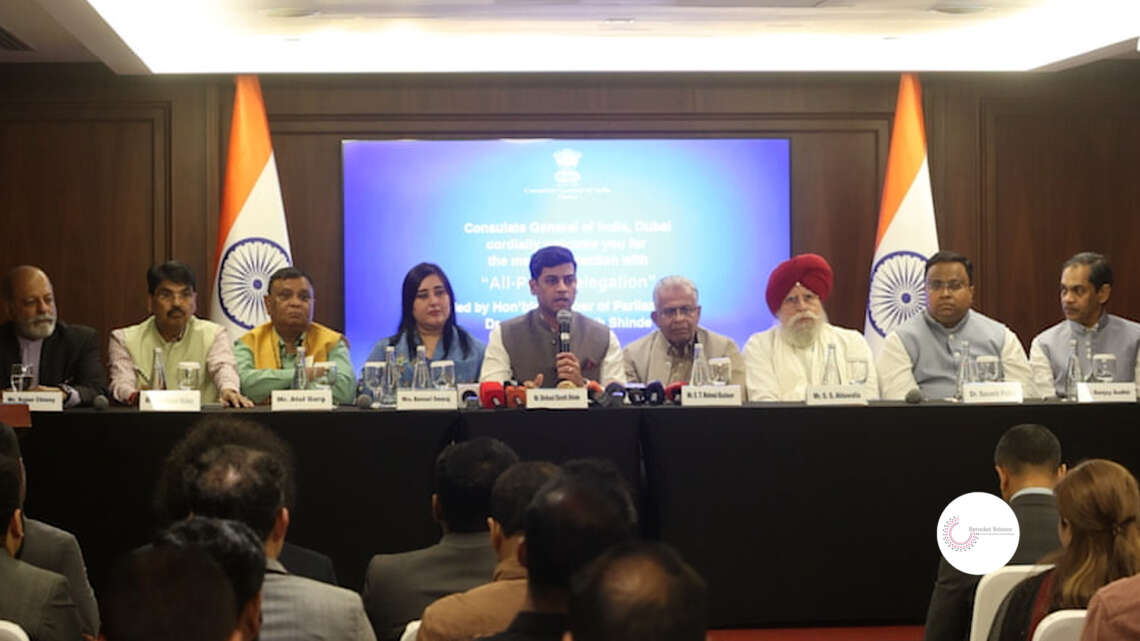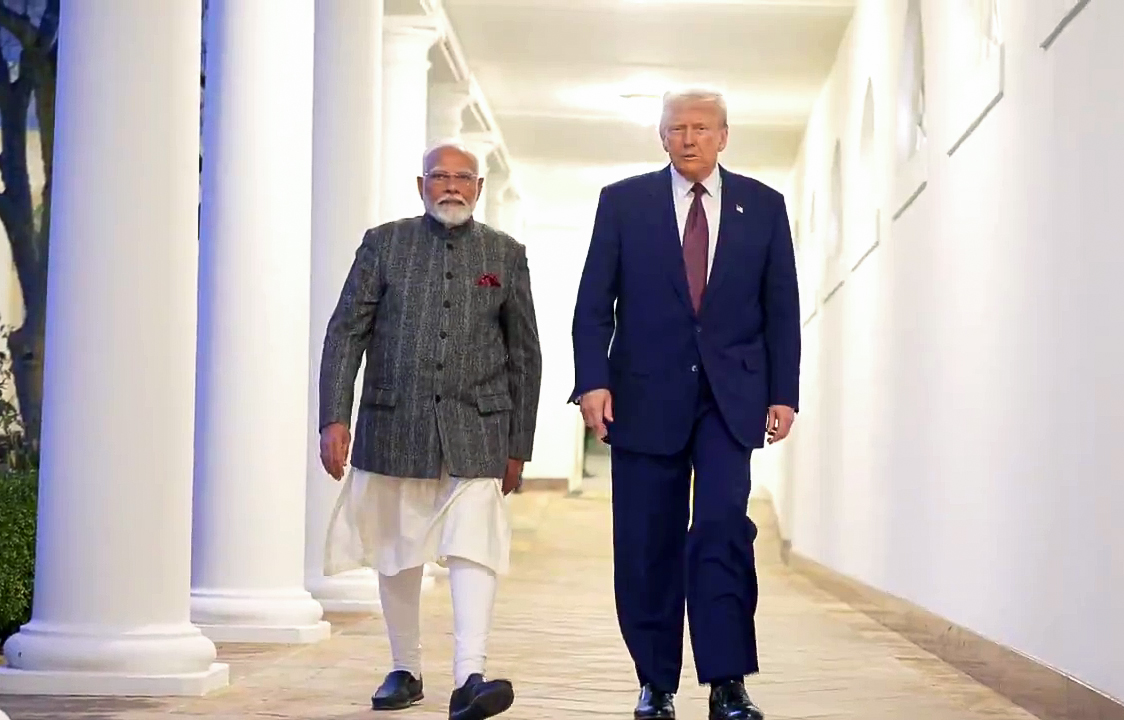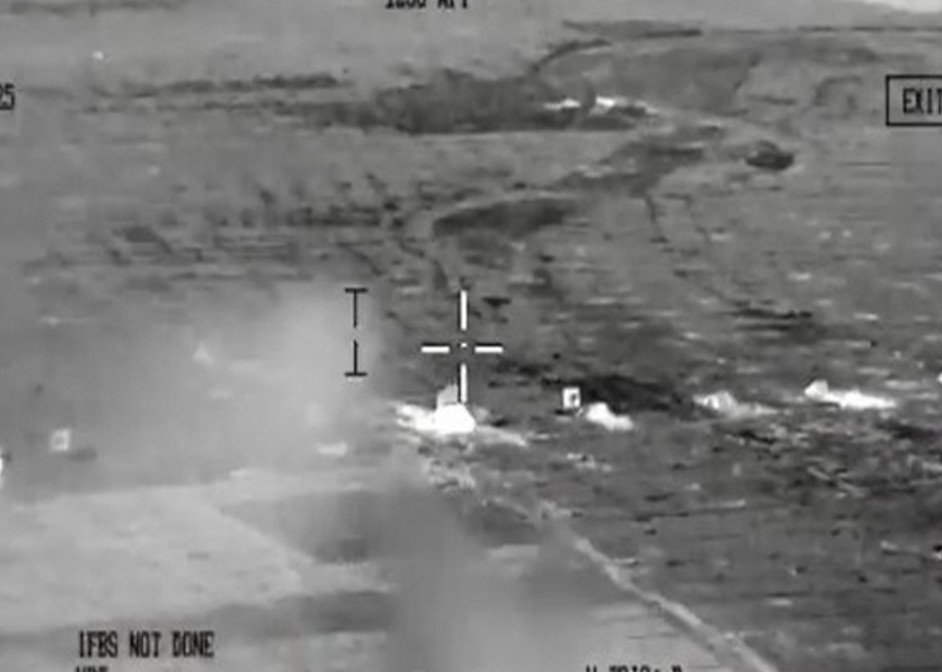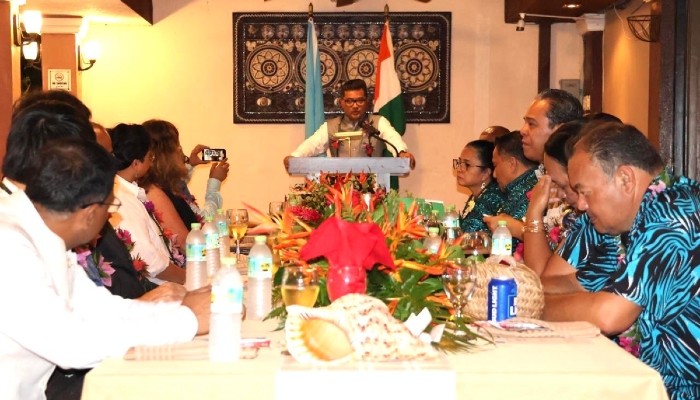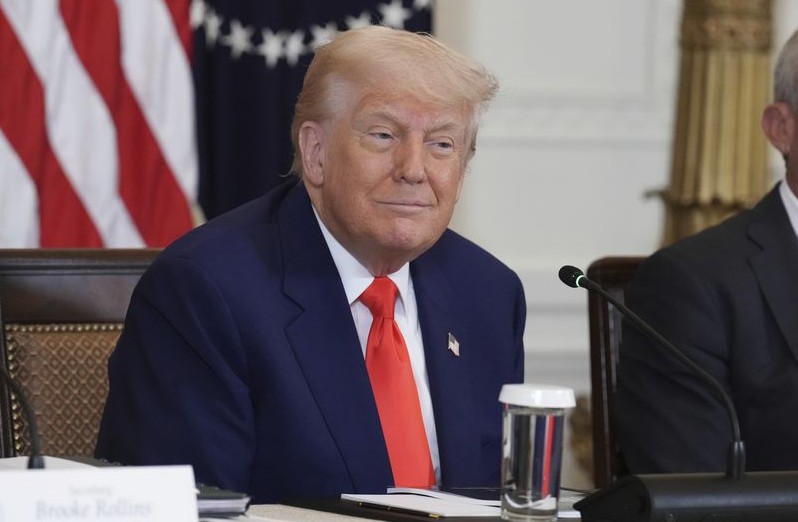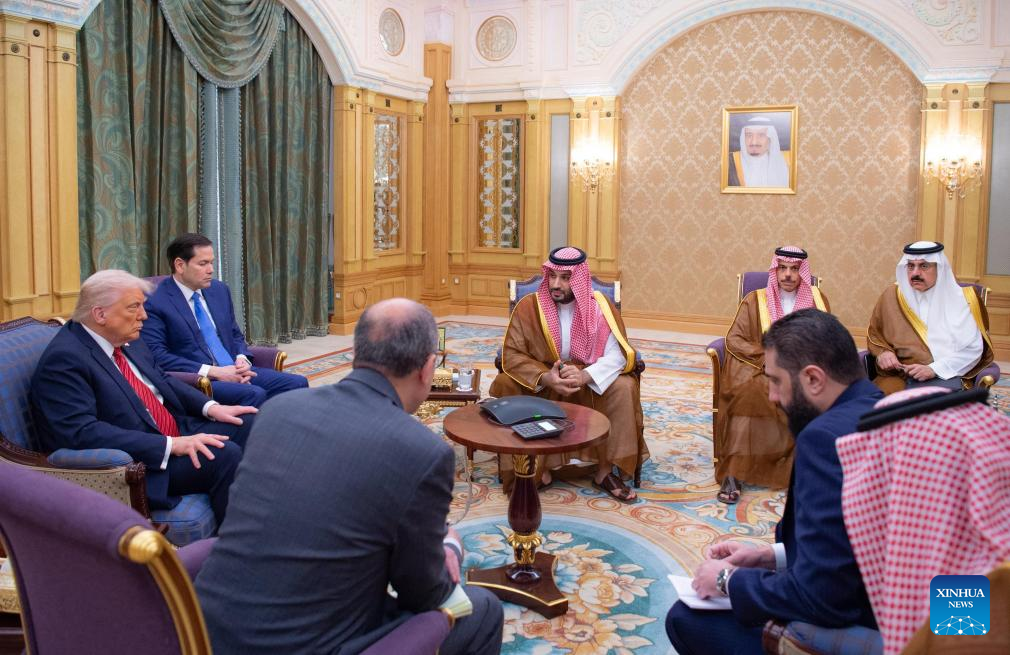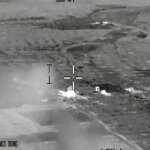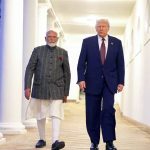“Trade and terrorism cannot go hand in hand. Water and blood cannot flow together.” These were the resolute words, of the Indian parliamentary delegation led by Dr. Shrikant Eknath Shinde, who delivered a powerful message from UAE- to the world.
Soniya Kirpalani: Global Investigative Journalism Fellow
Video & visuals: Santosh Rai.
It all began with bloodshed in Pahalgam, Kashmir’s a serene valley turned red, soaked in cold blood of Indian tourist and civilians, as a group of terrorists, gunned them down in a calculated massacre. Twenty-six lives were lost, mostly men, brutally murdered in front of their wives and children. The Resistance Front (TRF), were the first to claim responsibility for this massacre on X. TRF is allegedly a proxy reincarnation of terrorist organization Lashkar-e-Taiba, who created this new outfit in order to circumvent UN sanctions. It is said to be based in Pakistan. However, growing international condemnation, soon led to TRF suspiciously withdrawing their own admission, and this flip flop hinted at a conspiracy in the shadows.
For India, this repeated external orchestration of terror, was a breaking point. Indian Union Muslim League, Shri ET Mohd. Basheer We told them: the gravity of our response, you cannot even imagine. But we still acted with decency, dignity, and restraint.” Refusing to absorb the refused cost of terror in silence, they launched Operation Sindhoor: which is claimed to be a calibrated military strike targeting nine cross-border terror hubs, backed by intelligence and satellite surveillance. India insisted its strikes were limited to UN-designated terror sites in Pakistan, but Pakistan saw this as an attack on their sovereignty. They, Pakistan, retaliated with airpower maneuvers, deploying fighter jets and Turkish-origin drones along the Line of Control, claiming defensive readiness. India made its own aerial fleet maneuvers in response.
“Trade and terrorism cannot go hand in hand. Water and blood cannot flow together.” These were the resolute words, of the Indian parliamentary delegation led by Dr. Shrikant Eknath Shinde, who delivered a powerful message from UAE- to the world.
However, both countries alleged they had refrained from targeting civilian or military installations. On the ground, both armies fortified forward posts, with reports of minor skirmishes and electronic warfare in contested zones. While Islamabad accused New Delhi of aggression, India countered with satellite proof, intelligence dossiers, and international backing. The escalation peaked, but was fanned down by direct military-to-military communication — culminating in a ceasefire, which allegedly was quietly requested by Pakistan, without third-party mediation.
A parallel war seemed to have broken out: across digital domains, supported by paid-media and state media outlets. Whispered campaigns were launched in digital shadows, replete with claims and counterclaims. Analysts noted signs of information manipulation on both sides — ranging from deleted posts to disputed visual evidence. Yet amidst the propaganda fog, responses from international actors, including the UAE and members of the UN Security Council, signaled a growing urgency to separate fact from fiction.
In this information war, the message became as significant: both countries were vying on how to shape global perspective. Setting up a multi-party delegation as a diplomatic instrument Indian government’s aim is to win unity at home, and amplify India’s voice on the global stage. Diplomats, lawmakers, parliamentarians and the best experts were selected, even if they from the opposition party, to serve an overarching common goal, a part of India’s evolving foreign policy doctrine.
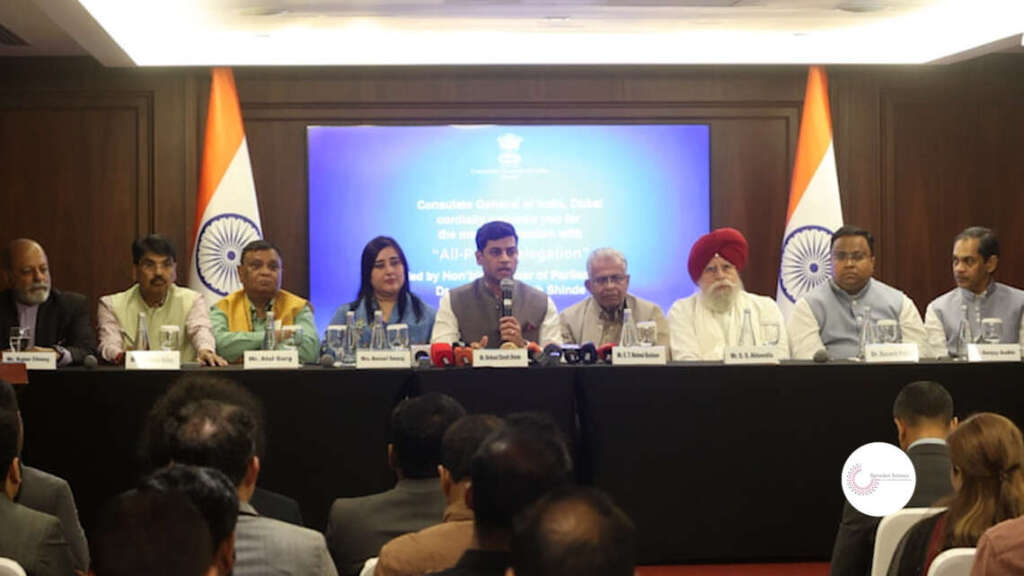
Sending them across Middle East, Asia, UK, Europe, USA to interact with global. leaders and media, this is the first time India is bridging their hard actions with the soft power of outreach. 23rd and 24th May, one delegation arrived in UAE, clearly focused on mobilizing goodwill, reinforcing India’s global positioning in an increasingly polarized world. They also wanted to show their gratitude to UAE’s leadership for their unwavering support since Pahalgam attacks. Their mission: to frame Pahalgam terror attacks as a global issue, not just India’s challenge.
This high-level delegation was led by Dr. Shrikant Eknath Shinde, and comprised of Ms. Bansuri Swaraj, Shri ET Mohmd Basheer, Shri Atul Garg, Shri Sasmit Patra, Shri Manan Kumar Mishra, Shri Surendrajeet Singh Ahluwalia, and former Ambassador Shri Sujan Chinoy. Their mission: be strategic and symbolic and strategic. The war seemed to have spread from the military stage to a diplomatic stage. An introduction to PM Modi’s “New Normal” a strategic diplomatic offensive aimed at uniting nations against terrorism.
Dr Shrikant Shinde said “We are here to give a message to the world — a message of peace, and a message of zero tolerance to terrorism,” Cataloging the long list of tragedies, terrorist attacks on its civilians: Mumbai’s 26/ 11 blasts, Pulwama, and now Pahalgam. He highlighted how after decades of dialogue and diplomatic attempts – Shimla Agreement to Lahore Declaration — India continues to face not just isolated incidents; but a pattern of calculated destabilization.
A part of their arc and to expose the alleged complicity of Pakistan’s army, as it harbors terror camps and has earned global condemnation for supporting some organization that may become a global security issue. With the striking phrases- poetic and political. It’s a striking phrase—blunt, poetic, and deeply political “TRF admitted to the killings, then retracted,” said MP Sasmit Patra questioned this, “That’s not standard terrorist behavior—that’s a clean-up operation. A cover-up directed by handlers who knew global pressure was coming.”
“The second incriminating where Pakistan gets caught, is when United Nations Security Council brings out to resolution on 25th of April, 2025 condemning this attack. There the name of TRF and also TRFs name was to be mentioned there on the floor of the UNSC.Pakistan tried its left, right and centre to somehow ensure TRF’s name is dropped from the draft of that resolution. Why? What is the linkage? The delegation insisted, they have furnished conclusive evidence several times, even invited Pakistan to India, given them DNA samples, intelligence dossiers, and forensic data — only to be met with denial and inaction
“Whenever we have provided evidence to them, they have never given us back anything, as far as the Dossiers are concerned.” Sasmit Patra pointedly question “Is it not a fact, in public domain, the photograph that came out those terrorists were wrapped in national flag of Pakistan? With the Pakistani generals, their officers, their Rangers, standing in full attention?” If you wrap a terrorist in a national flag and have army officers at their funeral, what message are you sending to the world?”
Coming to UAE was more than symbolic. It showcased a remarkable diplomatic solidarity, especially from His Highness Sheikh Nahyan bin Mubarak Al Nahyan, who reportedly told the delegation, “An attack on India is an attack on us.” UAE’s immediate condemnation of the Pahalgam attack and its unequivocal support for India’s response marked a significant geopolitical statement. The country, home to over 3.5 million Indians, is also a model of secular coexistence. As MP Bansuri Swaraj observed, “The Indian diaspora here is not just a demographic — it is a movement, an ambassador of peace.”
India also acknowledged UAE’s Ministry of Tolerance and Coexistence as a pioneering effort in global peacebuilding — a model India hopes other nations will emulate. “Terrorism is no longer India’s problem alone,” said Dr. Shinde. “The UAE has felt it. So has the U.S., the U.K., and countless others. If we don’t unite now, the fire next door will engulf our homes too.” Shri Sujan Chinoy, India’s former ambassador and senior diplomat, reiterated that bilateral solutions, not third-party mediation, remain the key to Indo-Pak stability.
Dr Shinde and Mr. Manan drew attention to India’s trajectory — from post-colonial fragility into becoming the 5th largest economy.
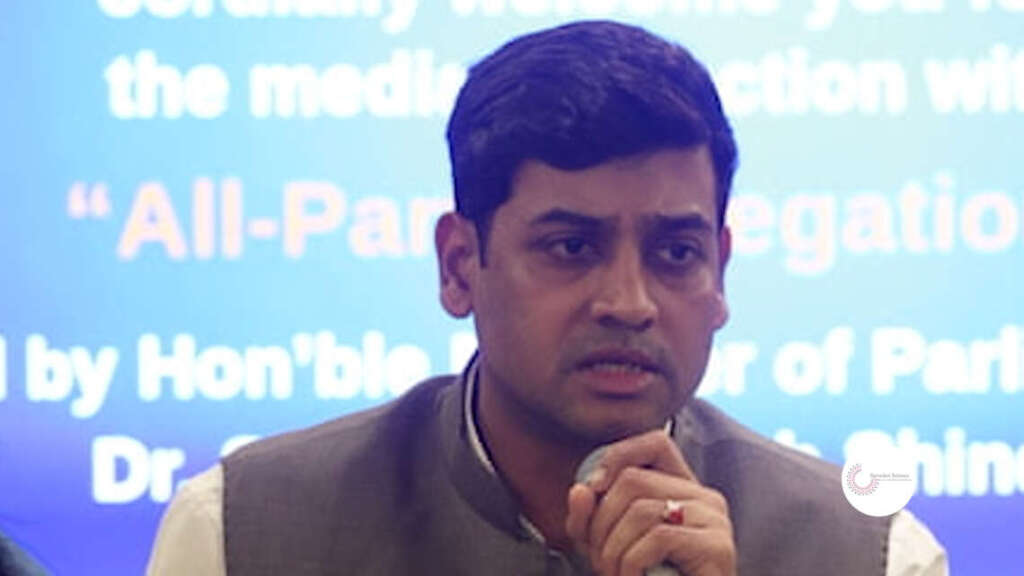
In stark contrast, Pakistan, once seen as an economic peer, has plunged below Bangladesh in GDP rankings, crippled by terror networks and corruption. Shri Manan Kumar Mishra (MP) explained “We did not come to insult Pakistan — we came to share the truth and counter misinformation. The challenge in Pakistan is internal — it is corruption and terrorism that are pulling them down.” Dr Shinde echoed, “Trade and terrorism cannot go hand in hand.”
Shri Surendrajeet Singh Ahluwalia, echoed ““Nothing positive has ever come out of terrorism. It has never built. It has only destroyed.” Shri Atul Garg, sent a message to the Pakistani citizens, suggesting only they had the power to empower their future. “Why, in 75 years since their independence, not a single Prime Minister of Pakistan completed a full term? Why is it that in India and Pakistan have such a stark difference? I request the people of Pakistan to draw from this distinction and question what is the rhetoric being fed to them.”
With all its rhetorical power, this panel gave us an opportunity to reflect something more than national posturing. For me, it encapsulates a hardening doctrine in India’s foreign policy: zero tolerance to terrorism, and zero patience for global silence. I realize that from now onwards, there will be a coordinated Strike—Both Military and Diplomatic- as India clearly announced they were here to build a global coalition to name, shame, and isolate its perpetrators. As the Indian delegation continues its mission across the world, it carries the voices of 1.4 billion citizens, it is asking not just for solidarity — but for shared vigilance.

